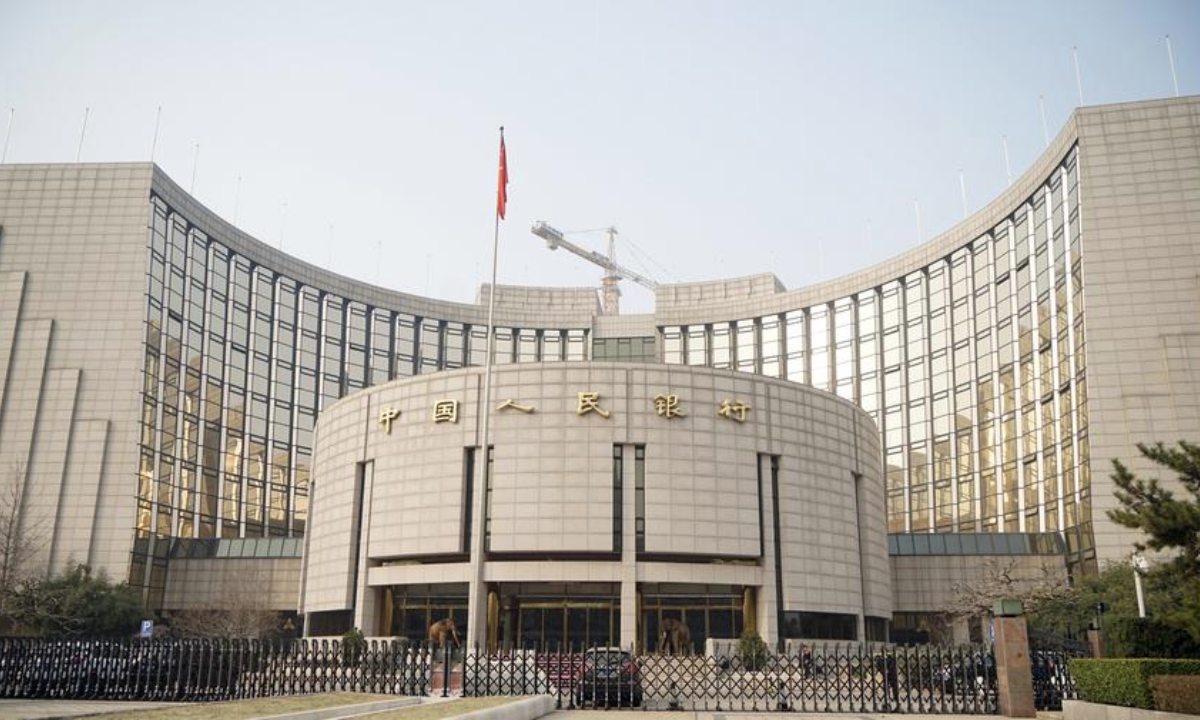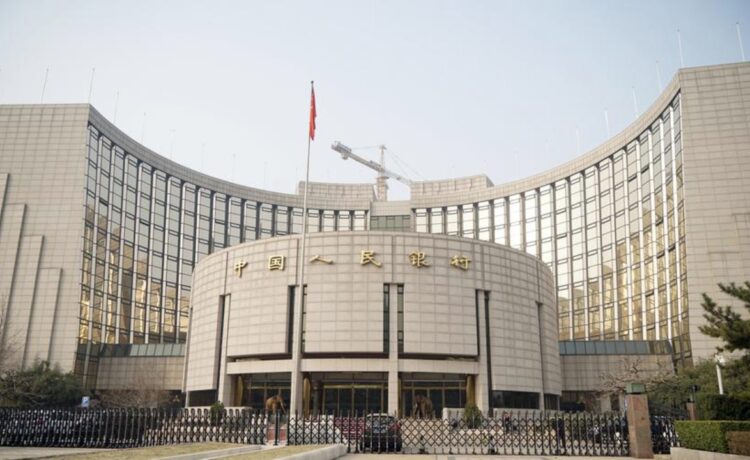
The picture shows a view of the People’s Bank of China. (Xinhua photo)
The People’s Bank of China (PBC), the central bank, announced on Monday that it recently renewed its bilateral local currency swap agreement with the Bank of Korea for another five years, a move that the PBC said is expected to promote bilateral trade cooperation and underpin financial stability.
The swap line, approved by China’s State Council, remains at 400 billion yuan ($56.2 billion) and can be extended by mutual consent, according to a statement published on the PBC’s official website on Monday.
“The renewed bilateral local currency swap agreement will help further deepen bilateral monetary and financial cooperation, facilitate bilateral trade and maintain financial market stability,” the central bank said.
The current renewal and swap line are the same as in the previous agreement signed in October 2020, when the two sides agreed to expand the swap line from the original 360 billion yuan to 400 billion yuan and extend the term for five years until November 2025.
This renewal is one of the many bilateral outcomes of the recently concluded 32nd APEC Economic Leaders’ Meeting in Gyeongju, South Korea, during which the two countries signed more than 10 cooperation agreements in trade, finance, law enforcement, agriculture, technology, media and other fields, fully showing that bilateral cooperation is rich in content, dynamic, and has broad prospects, said the Chinese Foreign Ministry.
The renewal of the swap line reflects the stability and maturity of China-South Korea currency swap and financial cooperation mechanisms, Dong Shaopeng, a senior research fellow at the Chongyang Institute for Financial Studies at Renmin University of China, told the Global Times on Monday.
Dong said that currency swap agreements are not only financial arrangements but also help deepen cooperation in cross-border settlement, trade financing and financial product innovation, enhancing the ability to serve enterprises in the real economy and strengthening regional financial stability.
“From a broader perspective, against the backdrop of the successful APEC meeting, financial cooperation will further consolidate the bilateral relationship and expand space for trade and economic exchanges,” Dong added.
The China-South Korea currency swap agreement was first signed in December 2008, with a swap line of 180 billion yuan, aimed at addressing the international financial crisis and supporting cross-border trade settlement between the two countries.
It was subsequently renewed in 2011 and again in 2014, extending the agreement until October 10, 2017, and increasing the swap line to 360 billion yuan, accounting for 45.8 percent of Korea’s total foreign currency swap agreements.
Bilateral local currency swaps are collateralized financing arrangements established between the central banks of two countries or regions based on mutual trust, in which one side pledges its own currency to obtain an equivalent amount of the other party’s currency.
These swaps enhance financial stability, liquidity, and bilateral trade and investment by enabling direct local currency settlements, which simplify business operations and shield against US dollar exchange rate volatility.
This year, the PBC has continuously deepened currency cooperation with overseas central banks. Since May, it has signed currency swap agreements with Brazil, Turkey, Thailand, Switzerland and Hungary.
As of September 30, the PBC had signed effective bilateral local currency swap agreements with the central banks or monetary authorities of 32 countries and regions, with a total swap line of about 4.5 trillion yuan, providing stable yuan liquidity globally, the Xinhua News Agency reported.
Bilateral and multilateral financial cooperation mechanisms are gaining ever greater importance. Dong noted that renewing the China-South Korea currency swap not only bolsters regional financial stability and smoother trade flows but also shows the two countries’ proactive commitment to preserving open collaboration amid the headwinds of deglobalization.





